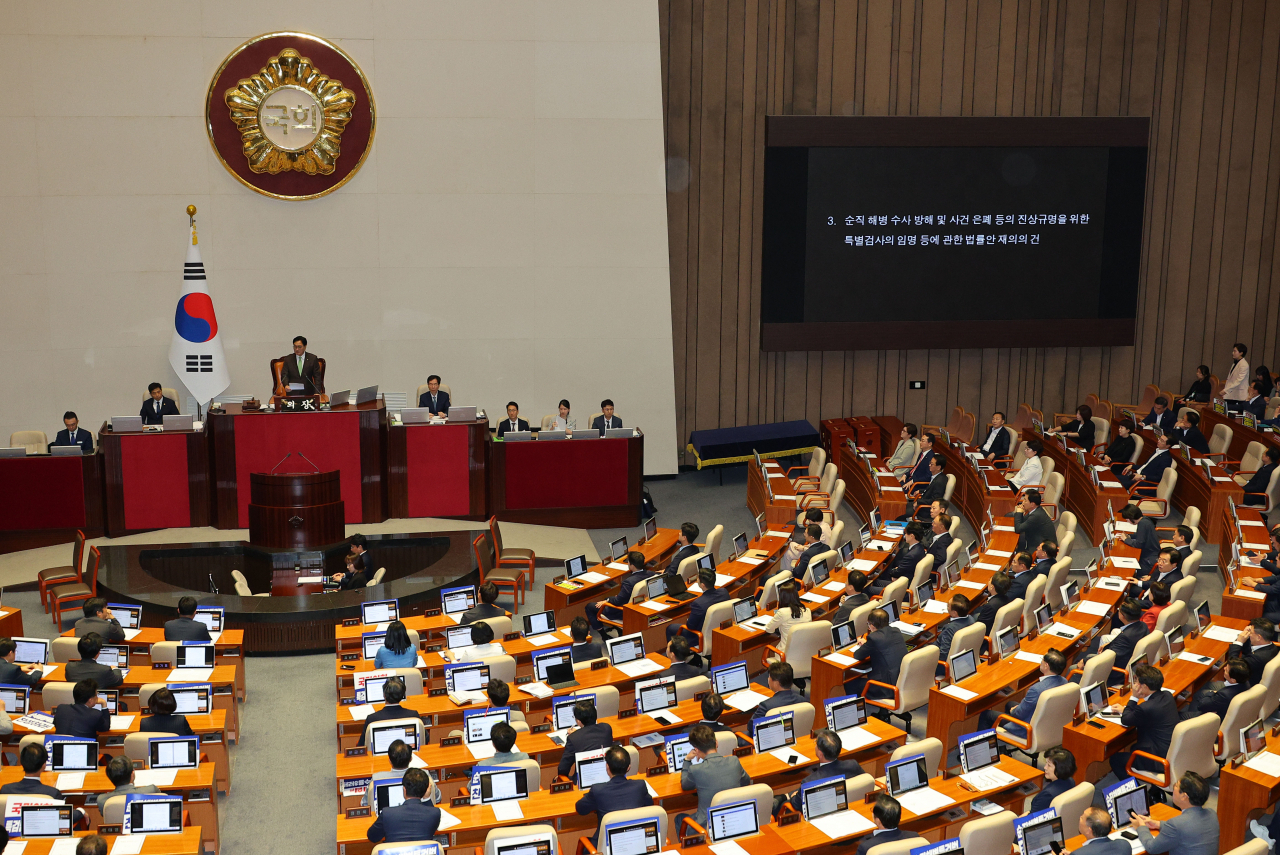
Gridlock is expected to continue in South Korea's legislative body as the ruling and opposition parties are stuck in a cycle of filibustering and vetoing each other's bills without seeking bipartisan agreement. The latest standoff revolves around a series of broadcasting bills aimed at reducing government influence over public broadcasters. Despite the ruling party's filibuster, the opposition-led National Assembly managed to pass the second bill, expanding the board of the state-funded Korean Broadcasting System and widening the authority to recommend board members. Filibusters, which allow the minority ruling party to voice opposition and delay votes, have become a time-buying tactic due to the opposition's majority. Under the National Assembly Act, a filibuster can be ended if three-fifths of lawmakers consent after 24 hours. However, if a bill is vetoed by the president, the opposition lacks the two-thirds majority required to override the veto, resulting in a political deadlock. The current gridlock is expected to persist through the summer, with the Democratic Party planning to reintroduce progressive initiatives, including a universal cash transfer program and the "Yellow Envelope Act," both previously vetoed by the president. The ruling party also anticipates more vetoes, setting the stage for prolonged political stalemate.
